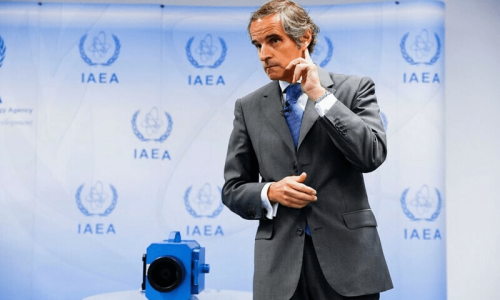RIYADH, Jan 17: A crisis is in the making. Panic is creeping in. With demand dropping faster, crude producers are on edge, endeavouring hard to somehow balance the markets. The very issue of demand security that Opec has been insisting all these turbulent years, seems so pertinent at this stage. Oil demand could fall even by 45 per cent, admits the otherwise ever smiling and pleasant Majid Al-Munif, the former Saudi governor at Opec.
In remarks given at a conference last week, he admitted the global financial crisis may cut oil demand by 23 per cent to 45 per cent.
And this is a major shift in sentiment. It was only in October last year that al-Munif was still positive in outlook, clearly stressing that the global oil demand (then) was not showing (any) signs of weakening amid the emerging financial crisis. “The ongoing financial crisis will not necessarily have a big impact on energy,” he had then said adding that its impact would be very limited.
Things have moved at a rapid pace over the intervening period. Global demand is shrinking rapidly. The last time world petroleum demand fell was in 1983. The past three months have been tough. World oil demand fell by 50,000 barrels per day in 2008, and it was expected to fall by another 450,000 bpd this year, the United States Energy Information Administration said in a report.
Deutsche Bank AG said last week that oil consumption will drop by one million barrels a day this year as the US, Europe and Japan face their first simultaneous recessions since the Second World War.
Goldman Sachs Group says, “Weak underlying economic fundamentals” will dominate the oil market, maintaining its forecast that oil will fall to $30 a barrel this quarter, its report dated Jan 9 said. Oil inventories in Organisation for Economic Cooperation and Development nations are also likely to rise to a 10-year high over the next two months, Goldman analysts said.
And after briefly rising, courtesy the ongoing crisis in Gaza, its possible spillover and the harsh winter in the Northern hemisphere, crude continued its downward march on real concerns that output cuts already announced by the Organisation of Petroleum Exporting Countries will fail to counter the slump in demand.
“It appears that Opec is making a concerted effort to cut output but it’s unclear whether this will be enough,” underlines Michael Lynch of Strategic Energy & Economic Research.
Interestingly, the markets seem no more interested in the fact that Opec was honouring its cut promises. Difficult times indeed require unusual steps and for a change Opec is keeping to its commitments. “The numbers coming out of Opec show that there is strong compliance,” admits Rick Mueller, of Energy Security Analysis Inc.
Saudi Arabia is taking the lead. Others are following too. Aramco sent notices last week to refiners in Asia that it would lower crude supplies to the region by about 10 per cent in February. This was the third straight month that Aramco has reduced sales.
February production would be “lower than the target,” Saudi oil Minister Ali al-Naimi asserts. “We are working hard to bring the market in balance. We will do what it takes to bring the market in balance.” And this is significant. And more could come. Opec oil producers are prepared for “further measures,” the cartel’s secretary general emphasised. “All in all, we will not know the full effect of the latest 2.2-million-barrel-a-day reduction, and the degree to which member countries have adhered to it, until Feb 15,” secretary general Abdalla Salem El-Badri said in an interview with Opec’s monthly bulletin.
He said that after Feb 15 the Opec secretariat would review the market and present its findings to an Opec conference in March. “If then the market is still over-supplied, the conference will not hesitate to take further measures to balance the market.”
And Opec seems determined. It has long been stressing that stable oil prices are essential to ensure long-term investment in the industry. Energy is a costly affair. If fair returns to the investments in this crucial industry are somehow not ensured, it would have a detrimental impact.
Already clouds are gathering over projects in various parts of the world. Even the search for alternative sources could get a big hit, most now agree. In the evolving scenario nothing could be taken for granted.
Eyes are focused on Opec’s resolve and ability to stem the tide. At stake now is its credibility.












































Dear visitor, the comments section is undergoing an overhaul and will return soon.